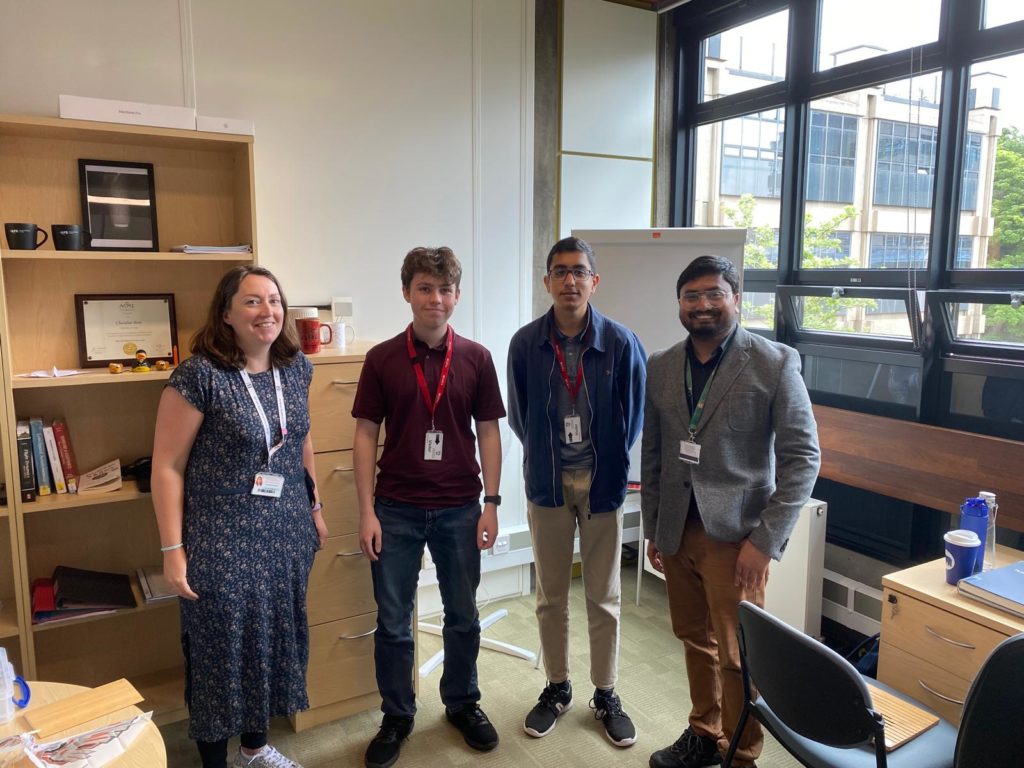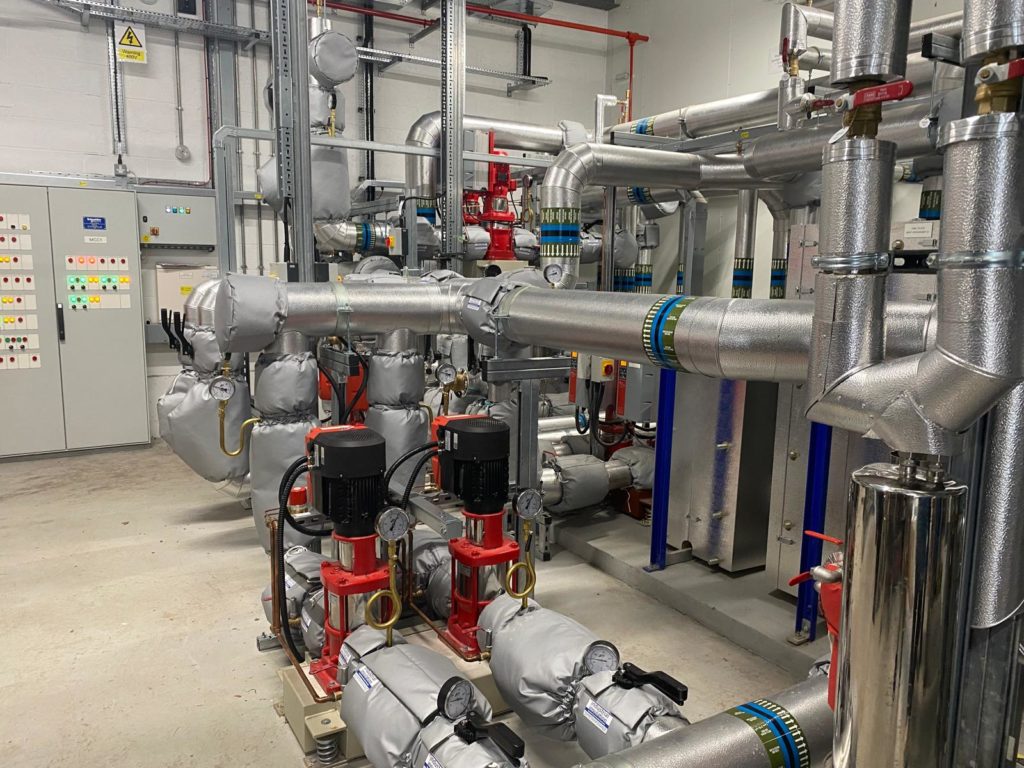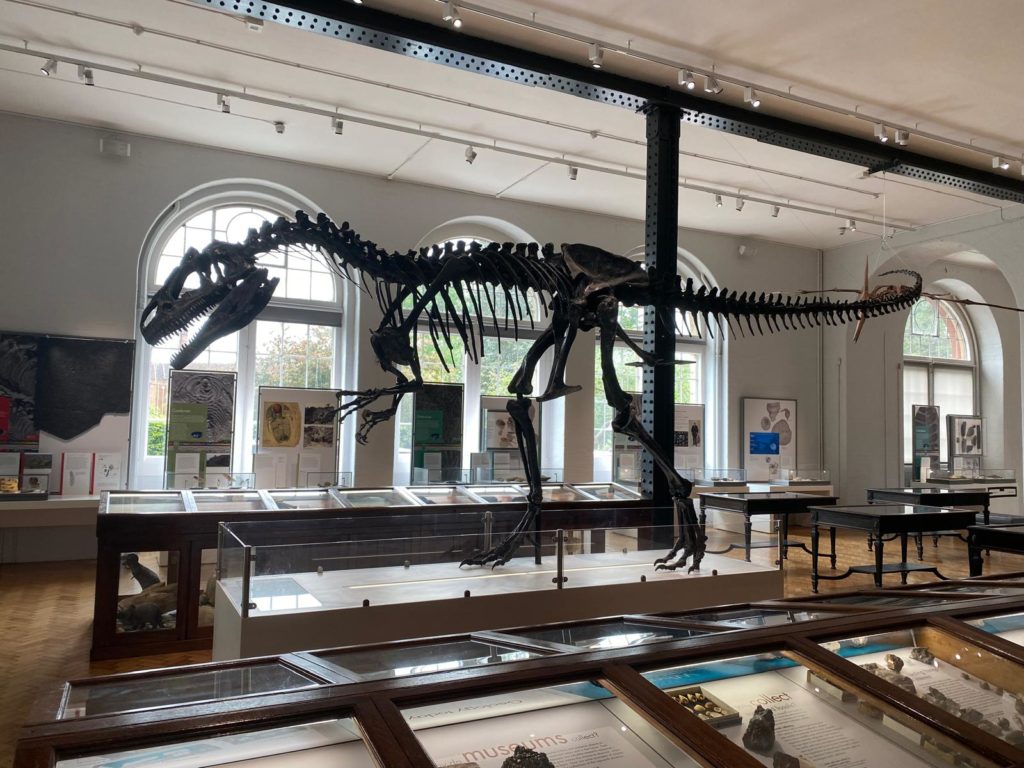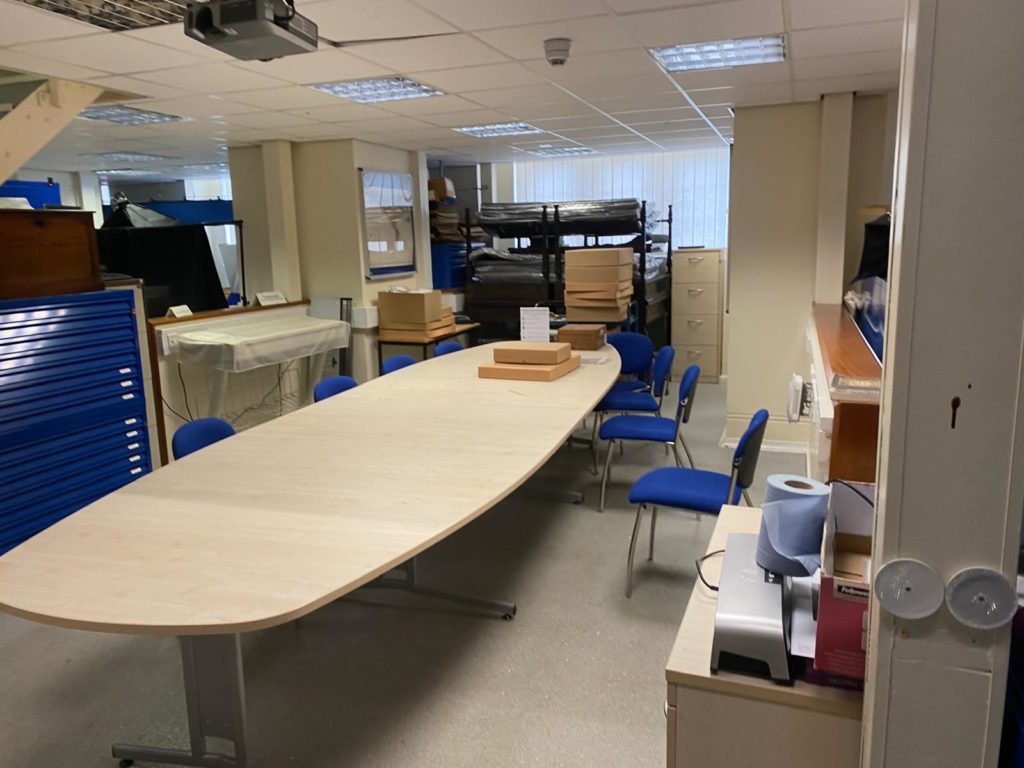Back in May, two students from year 10 did their work experience within the Advanced Research Computing team at the University of Birmingham. You can find out how their week went below, as they describe their first-hand experience.
Who we worked for
During our week of work experience we worked alongside Dr Stephanie Thompson of the Advanced Research Computing (ARC) team. Advanced Research Computing is part of the wider IT (Information Technology) Services team at the university.
What does the Advanced Research Computing (ARC) team do?
The ARC team manage BEAR (Birmingham Environment for Academic Research) services, which provides researchers with access to powerful computing systems and tightly-coupled, fast data storage to meet the challenges of research in a wide range of academic disciplines. The team also offer training and support to allow researchers to access and use the latest innovative technology solutions.
The team also runs Baskerville, a national, accelerated computer system, hosted at the university and providing researchers with access to over 200 high powered GPU’s.
Our week of work experience

On our first day of work experience we were given a tour of the campus upon arrival. After this we were provided with our visitor passes and were taken to meet Dr Chandan Bose, who explained to us how he was using how birds fly to improve the flight of our modern-day planes and drones.

In the afternoon, we were given a tour of the research data centre and shown the innerworkings of BlueBEAR and Baskerville together with the water-cooling systems in place to keep the temperature of the systems regulated and functioning.
On the Tuesday, we assisted in a thesis submission event, which involved taking questions from research students who had problems, and introducing other students to BEAR and how it can assist them with their projects and research. This helped us develop our communication skills, as we were talking to students about BEAR and trying, with our fairly limited knowledge (this was the second day after all), to solve their problems or pass them onto someone who could. Later that day we went to talk to James Carpenter, who leads the BEAR Applications team within ARC. James explained to us how the supercomputers worked, showed us how to give it a job and the many functions Baskerville and BlueBEAR are capable of.
On Wednesday, we went to visit Warrick Ball, a Research Software Engineer in ARC who talked to us about his experience working here and the work he does to assist researchers in their studies. We were told about his background in astrophysics and the path he took to reach his position. Later in the day, we visited the Queen Elizabeth Hospital where we met Jack Sullivan, a researcher in medicine who explained to us his work and the equipment his Institute use to study, store and develop samples.

On Thursday we visited an NVIDIA Deep Learning Workshop where we were mildly confused to say the least (the whole thing was a bit too advanced for us, as we are year 10’s!). After this, we went and sat in the ARC section meeting, where we met most of the staff working in the ARC team and got an insight into their day-to-day work. In the afternoon, we went to the Lapworth Museum of Geology, where we had a behind-the-scenes tour of the storerooms by Assistant Curator Josh Dixon. We were shown some rare and valuable pieces, such as gold, platinum and one of the first discovered Trilobites or ‘Dudley bugs’.

This was a very interesting experience and taught us some great history of the area. We were also shown the archives, with all the paper notes and letters written by many famous geologists, including the museum’s founder Charles Lapworth.
On the final day of the week, we visited Laura Brown in IT services who explained to us the process of website and app design, and how she takes student comments and uses them to improve the websites and apps related to the university.
Overall, I really enjoyed the work experience week, it taught me a lot about many different things, such as; how a supercomputer works, how subject areas such as fluid dynamics, astrophysics and geology utilise BlueBEAR and Baskerville to further their research, and many life lessons such as teamwork and communication. My favourite part was talking to Warrick Ball about his career in astrophysics, as it is a subject I have a keen interest in.
Seb, work experience student
I’ve really enjoyed my week of work experience; I’ve learnt a lot about the inner workings of the IT area here at the university and about how important it is to the students and staff here at the university. My favourite part of the week was seeing the inner workings of the Lapworth Museum and having a more in-depth tour of it and its collection behind the scenes.
Shaan, work experience student
Summary
In summary we learned a lot throughout the week. We saw how vital it was for the IT team to keep all their systems and operations functioning, how the IT team have all come from differing backgrounds ranging from foreign nations to varying degrees from music composition to astrophysics. We also saw the hard work and determination exhibited by research students and staff alike, with them both enquiring about how to access BlueBEAR and the work and effort they put into their projects and degrees.
All in all, we would have to say that this week of work experience has given us a true insight into not only what it is like at university, but also who works behind the scenes, and we would like to thank the people we have met such as Dr Stephanie Thompson, Dr Chandan Bose, Dr Warrick Ball, Dr James Carpenter, Aslam Ghumra, Debbie Carter, Yajie Zhang, Jack Sullivan, Josh Dixon, Angela and Laura Brown for their contributions and the time they have put aside to show and to explain to us their lines of work.
We were really pleased that Seb and Shaan enjoyed their week of work experience with us in Advanced Research Computing. If you are interested in doing work experience with us, then get in touch via email (bearinfo@contacts.bham.ac.uk), and depending on team availability and demand we may be able to help.
